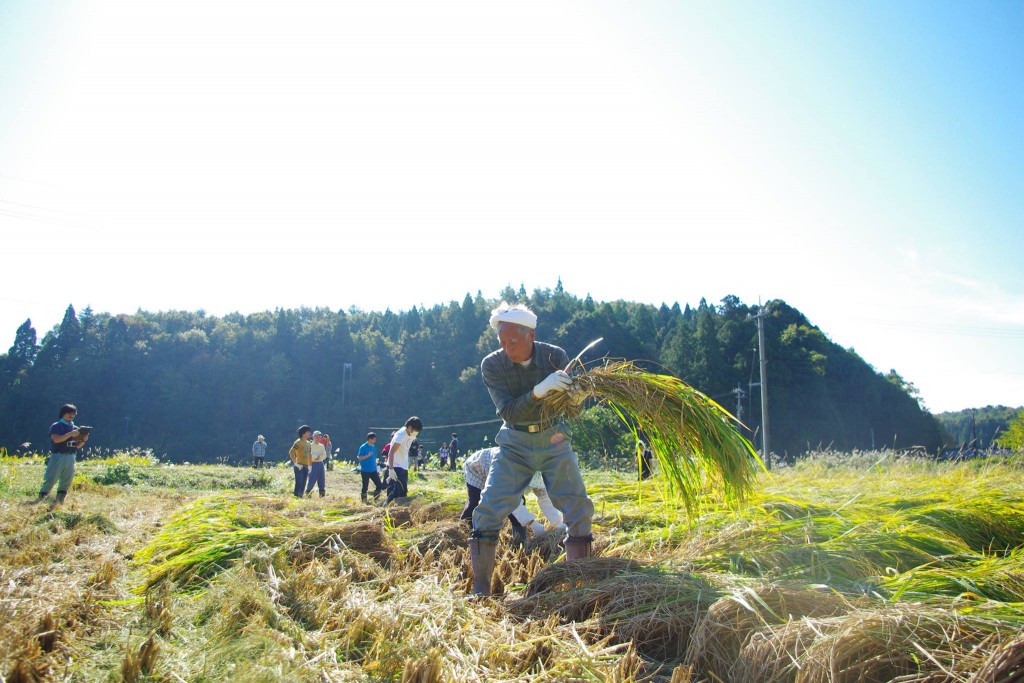 Aging of the population and an increase in the number of abandoned fields due to depopulation are serious problems in the Noto region; they cause a collapse of the landscape and ecosystems created by Satoyama. In addition, the traditional sake-brewing industry is faced with serious problems such as a lack of successors, and stagnation in the domestic consumption of sake due to a decrease in the number of young sake drinkers. In order to solve these problems, sake brewers and farmers in Noto are cooperating with university students in Kanazawa to vitalize Noto, agriculture, and sake brewing. The N-Project launched in March 2014.
Aging of the population and an increase in the number of abandoned fields due to depopulation are serious problems in the Noto region; they cause a collapse of the landscape and ecosystems created by Satoyama. In addition, the traditional sake-brewing industry is faced with serious problems such as a lack of successors, and stagnation in the domestic consumption of sake due to a decrease in the number of young sake drinkers. In order to solve these problems, sake brewers and farmers in Noto are cooperating with university students in Kanazawa to vitalize Noto, agriculture, and sake brewing. The N-Project launched in March 2014.
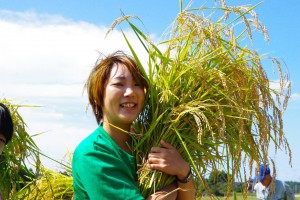
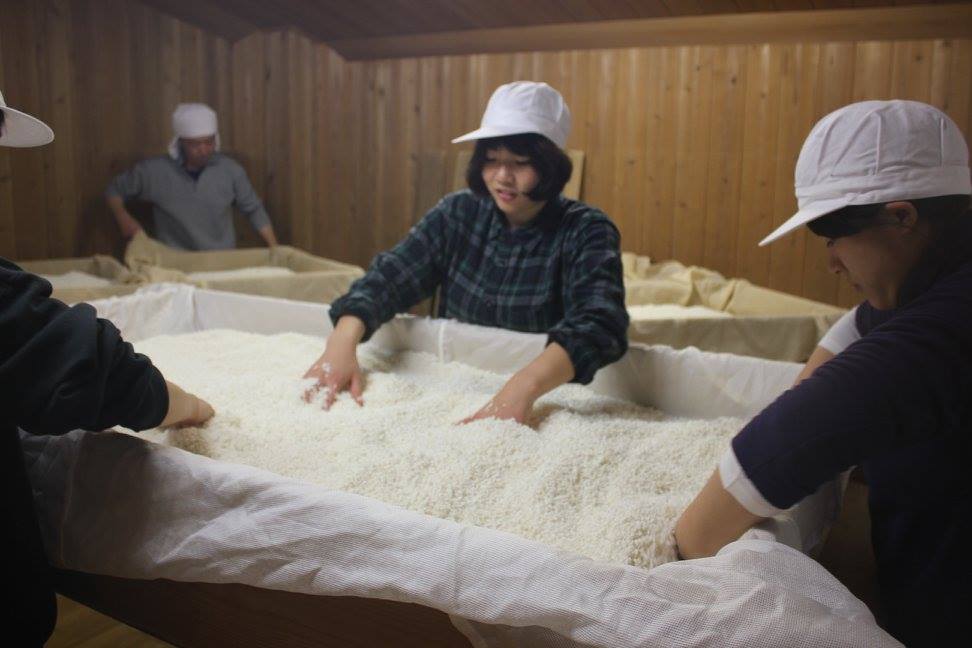 The project involves cultivating rice for sake breweries in the abandoned paddy fields on the Noto Peninsula, in order to restore natural resources that are being lost due to a lack of farmers. The rice harvested in these fields is used for sake brewing and commercialized. The project serves to disseminate the attractions of Noto to young people who are of the same generation as the project members. The project was the idea of a student whose father is a sake brewer in Noto. The project members include many students (17 as of February 18, 2016: Kanazawa University, Kanazawa College of Art, Ishikawa Prefectural University, Hokuriku University, Japan Advanced Institute of Science and Technology), farmers and sake brewers, and has produced great results.
The project involves cultivating rice for sake breweries in the abandoned paddy fields on the Noto Peninsula, in order to restore natural resources that are being lost due to a lack of farmers. The rice harvested in these fields is used for sake brewing and commercialized. The project serves to disseminate the attractions of Noto to young people who are of the same generation as the project members. The project was the idea of a student whose father is a sake brewer in Noto. The project members include many students (17 as of February 18, 2016: Kanazawa University, Kanazawa College of Art, Ishikawa Prefectural University, Hokuriku University, Japan Advanced Institute of Science and Technology), farmers and sake brewers, and has produced great results.
First of all, the students succeeded in cultivating abandoned fields of approximately 990m2; they made them into rice fields from 2014 to 2015. As a result, they harvested “Gohyakuman-goku” rice for sake breweries. Then they asked a brewery in Noto Town, Ishikawa Prefecture to develop an original sake for marketing to young people. The original sake that was produced was sold in February 2015; all 1,000 bottles were sold out by subscription. This project contributed to “local production for local consumption” through the development of a local sake made of sake rice and water from Noto.
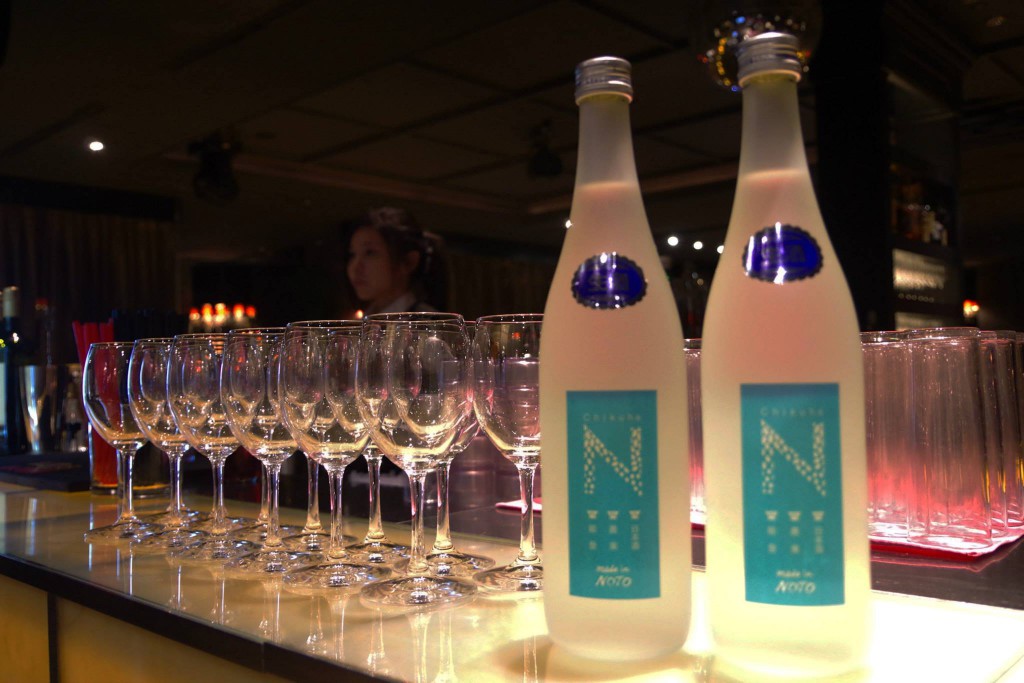
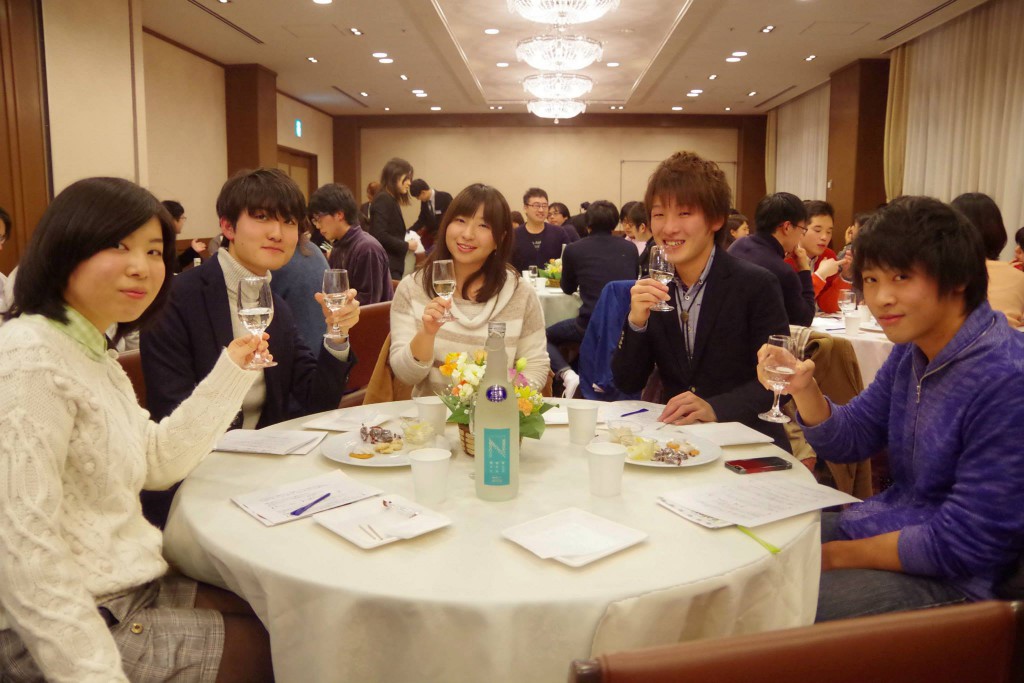 The unveiling of the new sake was held in Noto, Kanazawa and Tokyo from January to February 2015. People such as landowners and government officials attended the party in Noto, many college students attended the party in Kanazawa, and 150 students and general public attended the party in Tokyo. We received positive comments from young people, the target generation of this project, such as “Delicious!” and “I’d like to try more different types of sake”. In the second year of the project, we held a party to present the sake in Kanazawa. That party was held on Sunday, February 21, 2016. We will sell 3,000 bottles of original sake in 2016.
The unveiling of the new sake was held in Noto, Kanazawa and Tokyo from January to February 2015. People such as landowners and government officials attended the party in Noto, many college students attended the party in Kanazawa, and 150 students and general public attended the party in Tokyo. We received positive comments from young people, the target generation of this project, such as “Delicious!” and “I’d like to try more different types of sake”. In the second year of the project, we held a party to present the sake in Kanazawa. That party was held on Sunday, February 21, 2016. We will sell 3,000 bottles of original sake in 2016.
This project deserves attention, because it vitalized the local area with regard to the environment and the local economy, while providing students with opportunities to learn about public relations, marketing and international perspectives.
N-Project Awards
2015 Awarded Gold Prize of Ishikawa Eco Design Prize
2015 Awarded second place at Enactus Japan 2015
2015 Designated as an Ishikawa brand
2015 Awarded Food Action Nippon Award
2015 Second place at Local Youth Challenge Prize Hokushinetsu Block
2015 Participated in 1st European Conference on Understanding Food Design
For more information on N-project




